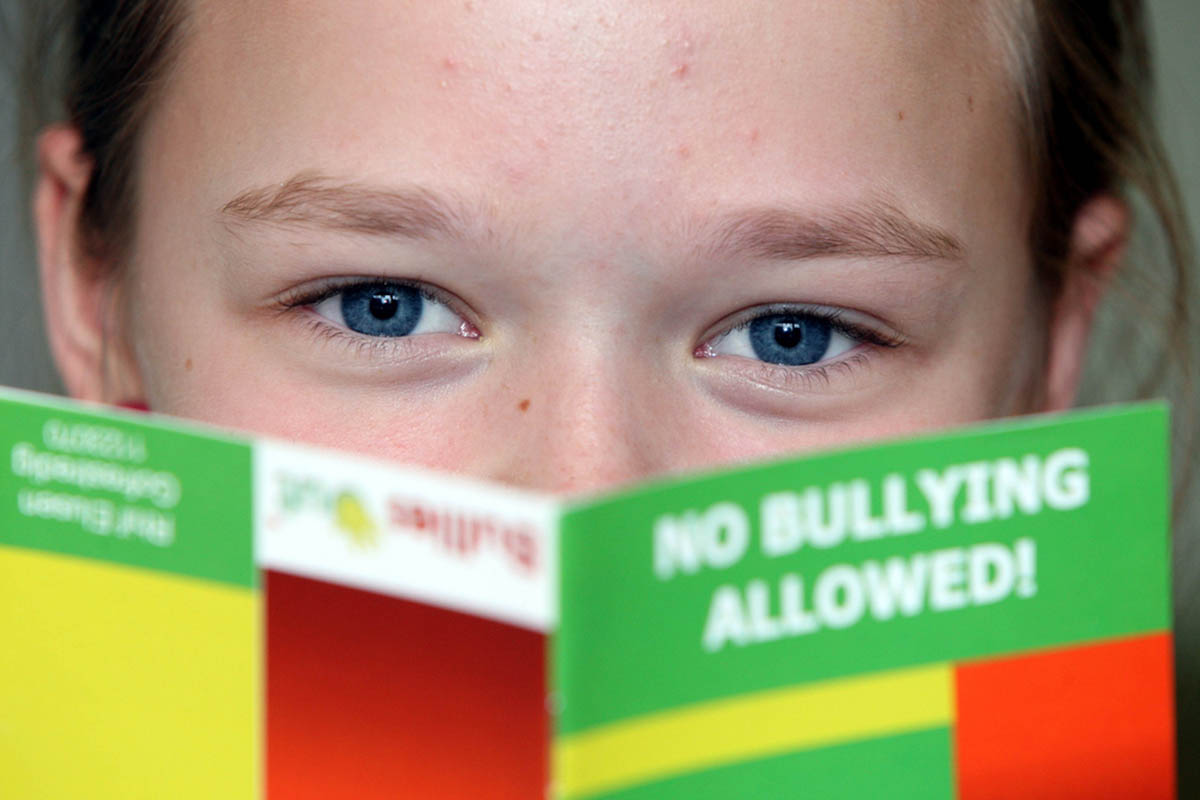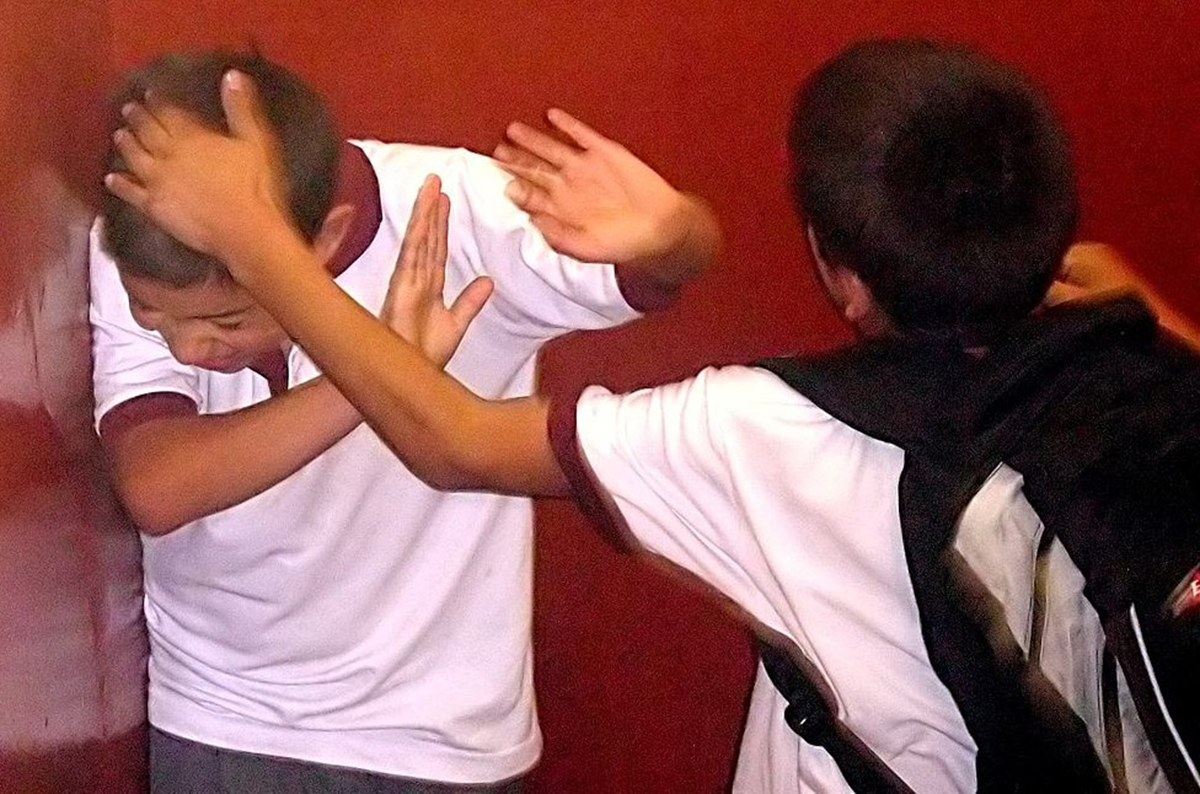Name-calling, teasing, being singled out for being different in any way — many people consider these things to be a normal part of childhood, but the fact is that bullying can have far-reaching consequences.

Children who are bullied are more likely to be depressed and anxious, issues that may persist into adulthood. They are also at risk of low performance and may even drop out of school. Physical symptoms can also be associated with bullying. Children who bully don't get off for free either. They may display violent behavior into adolescence and adulthood, and are more likely to use drugs and be convicted of crimes later in life.
No parent is glad to hear that their child is being bullied, or indeed bullying someone else. Yet in both cases, parents are most able to make a real difference in the child's life. Knowing what to do is by no means easy, however.
Bullying: The Signs
Though most parents hope that their kids would come to them if they were being bullied, this doesn't always happen. The child might not want to bother their parents, or may be ashamed to admit they are being bullied. Being familiar with some of the signs of bullying is therefore important.
The following signs may point to bullying:
- The child is not enjoying school (or other venue at which bullying occurs) any more, and may complain of physical symptoms like stomachache or headache to avoid going. Note that these physical symptoms may be feigned, but they can also be real.
- The child suddenly or gradually started to withdraw from peers or social situations.
- The child seems less confident.
- The child may have frequent bruises and other injuries, and may attribute them to clumsiness or sports accidents.
- Missing or broken personal items can be another sign of bullying, especially if the child doesn't want to talk about what happened to the items, and it happens often.
- The child's sleeping and eating habits may change. Think loss of appetite or comfort eating, and nightmares.
On the other end of the deal, a child who is increasingly aggressive, doesn't take responsibility for their actions, places a lot of importance on social status and popularity with peers, and comes home with unexplained items may be bullying someone else.
These signs can also point to other problems, but they are always something to investigate further.
If Your Child Is The Victim Of Bullying
Research shows that speedy adult intervention can stop bullying. Unless your child is being bullied in a situation you can easily remove them from, you will need to partner up with the adults in charge in the bullying setting for the best results. All too often, this means your child's teacher and other school staff. In an ideal situation, they will be familiar with the effects of bullying and the steps that might be undertaken to stop it. In some cases, however, you will not find the support you need in the adults at your child's school.
As a parent, you have some obvious priorities:
- Keeping your child physically safe.
- Protecting your child's mental health.
- Keeping calm. Panicking will frighten and worry your child more than they already are. You want your child to be relieved after telling you, not sorry.
See Also: Is Your Child Being Cyber-Bullied?
Your first impulse might be to pressure your child for details about what is happening. Be careful, though knowing what is going on is important. Allow your child to talk when they are ready for it, and rather than pushing them for more information, constantly reinforce that you are there for your child and your are committed to helping and listening to them.
While you will need to come up with an action plan that involves the other adults involved, make sure your child is not left out of this process.
Halting Bullying: What Can Parents Do?
You might feel very protective and have the urge to ensure that the perpetrator or perpetrators get punished, but bullying is one case in which your child's mental health matters even more than justice. For that reason, have a detailed conversation with your child before you approach the other adults involved (teachers, sports coaches, neighborhood parents, etc).

Ask your child how you can help. In some cases, a mediated bully-victim conversation can be helpful, but in other cases that can make the situation much worse. Changing seating arrangements, having the bully (not the victim, who should not be punished for being bullied) moved to another class, or a school program that tackles the general wrongness of bullying can all help.
Once you have discussed your action plan with your child, you can then talk to the teacher or other relevant people. In the best-case scenario, they will actively work with you to stop the bullying. If this doesn't happen, you may have to be a powerful advocate for your child and go higher up, by talking to the principle for instance. When even this doesn't help, removing your child from the bullying situation may be the only answer — but don't worry about that yet, as there is a much greater awareness of the harmful impact of bullying than when you went to school.
After the bullying stops, the harmful effects won't go away, so continue working to increase your child's self-confidence. One adult, bullied as a child, recommends sports that teach self-defense skills, like Judo. Therapy may also help. Most importantly, keep being there for your child and make providing a loving home environment your number one priority.
If Your Child Is The Bully
You might be horrified if you find out that your child has been bullying others. Bullying is certainly wrong, but your child is likely to get plenty of negative feedback and lectures from teachers and others if they have engaged in bullying behavior. What your child needs from you is compassion, and the skills they need to interact with peers more positively.
You'll benefit from finding out why your child ended up bullying others. What it to fit in with a particular crowd? To prevent being bullied themselves? Or could they be facing something else they are not talking about? Often, bullying behavior is the result of immense stress, abuse, very low self-confidence, or mental health issues.
Victims of bullying may need professional mental health support to deal with the impact of bullying, but the perpetrators of bullying require support as well. Therapy is a great option.
See Also: Spanking Makes Kids Violent And Poorly Behaved
Meanwhile, you can make sure your child knows that what they did was wrong — and ask them how you can help make sure they never feel the need to do anything like that again. Talk to your child in a calm and non-confrontational manner. Aim to understand the reasons behind their behavior. Sometimes children bully others because they are being bullied themselves, they're experiencing personal problems, or they don't understand the harm they're causing.
Model healthy peer interactions and friendly behavior, and talk about civil rights. If possible, ask your child if you can help them apologize to the victim, by writing a letter or setting up a meeting. This can be beneficial for both parties. Make sure your child knows that bullying is unacceptable. Set clear consequences for continued bullying behavior, and follow through with them consistently.
Help your child understand the pain and hurt they are causing. This could involve discussing how the victim might feel or asking how they would feel if the roles were reversed. Like victims of bullying, perpetrators may welcome the chance to have a fresh start. Children who bullied others as the result of peer pressure are especially likely to do well in a new environment, away from the group they bullied with and the teachers who will see them as problem children now.
- Photo courtesy of Working Word by Flickr : www.flickr.com/photos/workingword/4663156174
- Photo courtesy of Diego Grez by Wikimedia Commons : en.wikipedia.org/wiki/File:Bullying_on_Instituto_Regional_Federico_Err%C3%A1zuriz_(IRFE)_in_March_5,_2007.jpg


Your thoughts on this